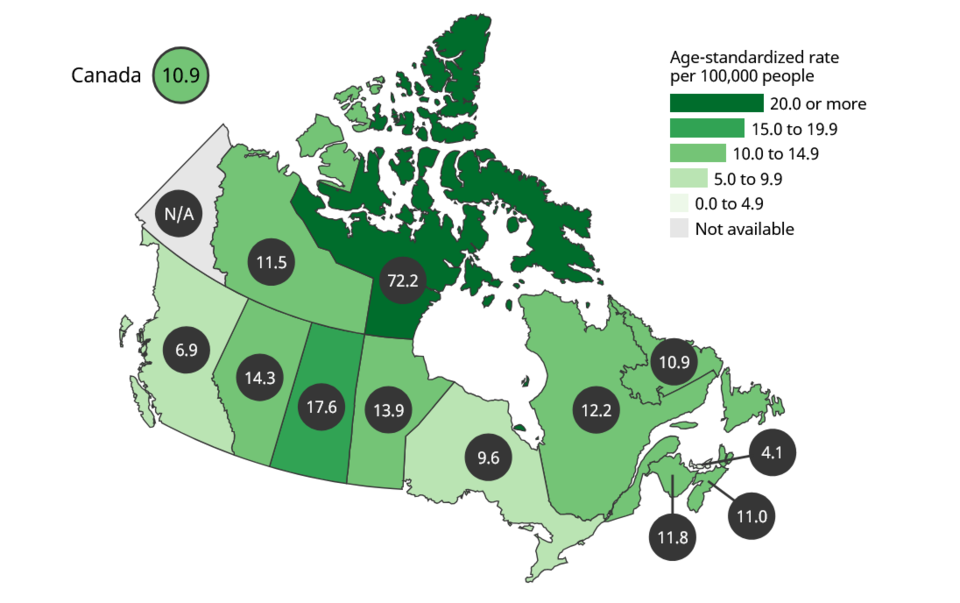At this moment, someone who is thinking about suicide has just dialed three digits on their phone and connected with a stranger who can help.
Nine-eight-eight, or 988. This is Canada’s new suicide hotline, and it’s saving lives 24 hours a day, seven days a week. It came about through a private member’s bill brought forward by the MP for Cariboo-Prince George.
Private members’ bills rarely receive much attention. Fewer than five per cent make it very far, and even fewer than that are successfully passed.
MP Todd Doherty’s Bill C-269 (An Act to amend the Telecommunications Act - suicide prevention) was adopted because his fellow members from all parties recognized how serious the country’s mental health crisis has become.
We live in dire times. Rising food costs, higher rents and mortgage rates, housing shortages, political division and job insecurity can take its toll on people’s mental wellness no matter their walk of life. Many consider ending it all as a flawed solution to their problems. However, when suicide happens, it leaves behind a wake of grief that compounds the ongoing mental health crisis. It’s no solution.
According to Statistics Canada, there are about 4,400 suicides and about 91,000 attempts each year in the country. In B.C., the rate is 6.9 per 100,000 population. That’s relatively low (but still far too high) compared to other provinces and territories; the most startling number is in Nunavut, with 72 cases per 100,000.
Sadly, the number of suicides and attempted suicides in Canada is likely much higher, as many cases go unreported because of the stigma surrounding the topic.
Doherty, who is shadow minister for mental health and suicide prevention, ignored that stigma and brought his bill at the right time. It took some time, but was eventually adopted. “With the addition of one simple line to the Telecommunications Act, Canada could have an easy-to-remember three-digit suicide prevention hotline,” he said in the House of Commons last year as he pushed fellow MPs to support it, which they did.
As he notes in our story, more than 250,000 people have called or texted 988 since it launched last fall. The hotline launched in late November, meaning that in the seven months since, more than 1,000 people a day have contacted 988. That’s a remarkable response.
Part of that is its simplicity. There’s no 1-800 number to memorize, and there’s no switchboard to navigate. No appointment necessary. When someone is in crisis, or knows someone who is, they can quickly access help by calling or texting 988.
Doherty told The Citizen that he put this plan together because, in part, he lost a friend to suicide as a teenager. Like him, many of us have lost someone in the same way or know someone who has. Suicide is far more common than many people realize, because we don’t talk about it and it rarely appears in the press.
The usage rate of 988 makes it clear that there’s a need, but also makes it clear that more has to be done, says Doherty, and he’s right. Governments must look at 988 as an indicator that the demand is there and public funds must be used to offer more supports for people who are struggling.
At this point, though, we can be grateful that 988 is working. Whether a person has planned it out in detail or is making a snap decision, being able to make a call to someone who can talk them down from the edge is a valuable addition to Canadian mental health supports.
We must also acknowledge the anonymous voices on the other end of the line. It takes a special kind of compassion to be able to talk to someone who is considering ending their own life. The anonymous people who take these calls should know that their communities thank them and recognize their dedication to what can’t be easy work.
Kudos to the House of Commons for understanding this need and supporting Doherty’s mission.
We may not want to talk about suicide, but we can talk about 988. Tell people. Share the story. The more people know about it, the more likely they’ll remember when they, or someone they love, has hit that darkest of moments.
Help is out there.
Resources
- Northern Health offers mental health support programs
- Northern B.C. Crisis Centre
- Heartbeat is a CMHA support group for people who have lost a loved one to suicide
- HealthLink B.C. is a 24-hour resource
- HelpStartsHere is the province's portal for mental health and addictions support



